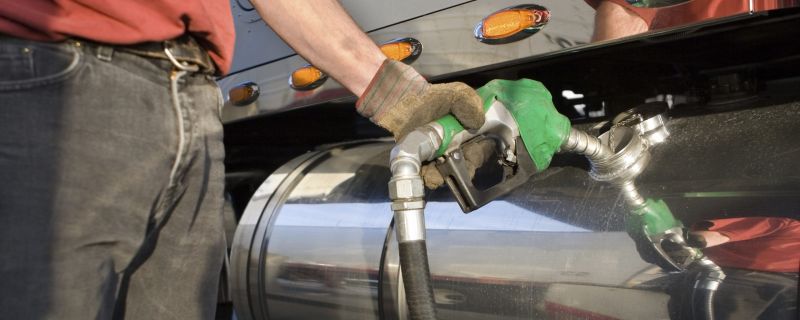
- Claims & Risk Management
- No comments
Fueling trucks, cars, machinery or other vehicles is a familiar activity, but it can be an extremely dangerous job if done incorrectly. Not only can improper refueling cause burns, fires or explosions, but the gasoline or diesel itself is also a hazardous substance with the potential for leaks and spills.
Always refuel your equipment in a way that keeps yourself, others and your vehicle safe from damage. Here are some tips to follow when refueling on the job site:
- Always concentrate on the task at hand. Do not try to complete other tasks while refueling.
- Stand by the tank so you can act quickly if something goes wrong.
- Do not refuel while smoking, while others are smoking or near any other open flames.
- Do not overfill the fuel tank – 95 percent full is a good guideline for any type of vehicle.
- On hot days, allow room in the tank for the fuel to expand.
- Turn off the engine and chock the wheels if there is a possibility the equipment or vehicle could roll.
- Do not top off the tank.
- Use only the hold-open latch provided on the pump.
Fueling Machinery with a Portable Container:
- Place the container on the ground when refueling, never on the bed of the work vehicle.
- Keep the nozzle in contact with the fuel tank’s inlet tube.
- Do not refuel in areas with heavy vehicle or foot traffic.
- Do not refuel in areas that have the potential for spills or fuel ignition.
- Use only approved fuel containers.
- After filling, wipe off the container and ensure the cap is secure and the air vent is tight.
In the Fueling Area:
- Clearly mark refueling areas to avoid the possibility of accidents, including spills or inadvertent ignition.
- Clean up all spills immediately. If you have to leave a spill unattended, mark off the area to reduce to possibility of slips.
- Make sure there is a fire extinguisher available in the area before you begin fueling and that you know how to use it.
- Keep the entire area unobstructed, making sure equipment can enter and exit the area smoothly and that it is free of garbage and debris.
Looking to have your worksite evaluated for fueling risks? Contact The Safegard Group today to see what we can do for you.

